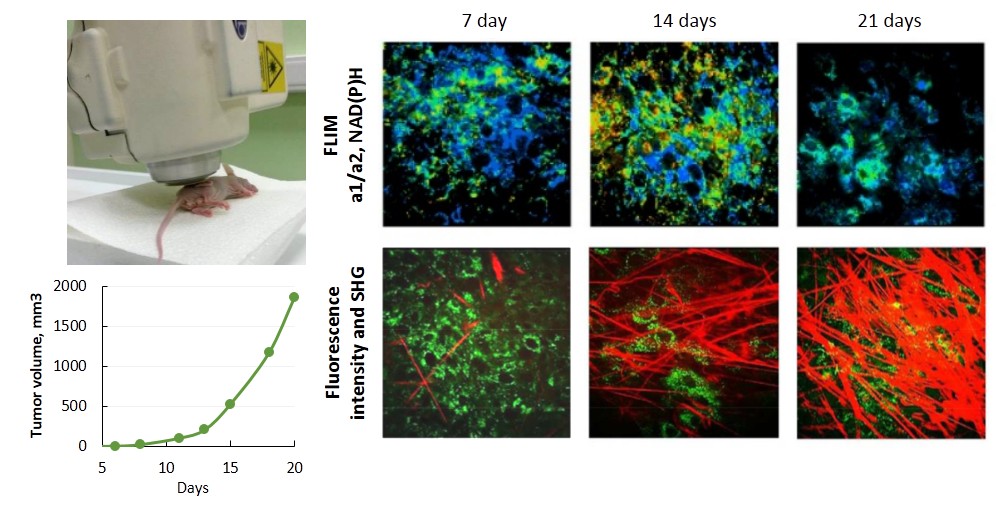Overview
Cancer cells and tissues are different in many ways from other cells and tissues in the body. The key features of cancer are abnormal cell growth, invasion and metastasis, evading apoptosis, hypoxia tolerance, metabolic plasticity with a high contribution of glycolysis to energy production, genetic and phenotypic heterogeneity. In our studies, we investigate some biological characteristics of tumors using fluorescence lifetime imaging (FLIM) and phosphorescence lifetime imaging (PLIM). Currently available time-resolved imaging systems enable to visualize fluorescence and phosphorescence from a micro- to a macroscopic scale, which opens the opportunity to explore cancer from cellular to a whole tumor level. In combination with genetically encoded sensors, chemical probes and endogenous fluorescence, these techniques provide new insight into the mechanisms of cancer development and response to therapy. The talk covers the basics of cancer biology and gives examples of the use of time-resolved techniques to visualize the biological features of cancer cells. The attention will be paid to cancer metabolism, apoptosis, oxygenation, and membrane viscosity with the focus on live cell imaging and in vivo studies on mouse tumor models.

About the Speaker
Marina V. Shirmanova is currently a Deputy Director of the Institute of Experimental oncology and Biomedical technologies, Privolzhsky Research Medical University, Nizhny Novgorod, Russia and a head of Laboratory of fluorescence bioimaging in this Institute. Dr. Shirmanova’s scientific efforts are focused on the study of cancer from subcellular to a whole-tumor level with the use of fluorescence and phosphorescence bioimaging techniques.
Her research interests include development of the new approaches to the assessment of tumor response to therapy and understanding the mechanisms of drug resistance.



